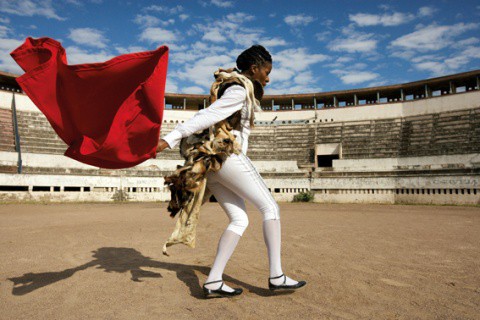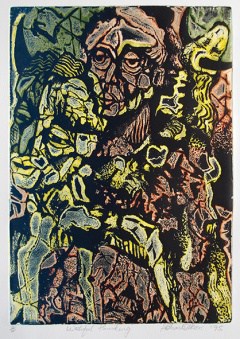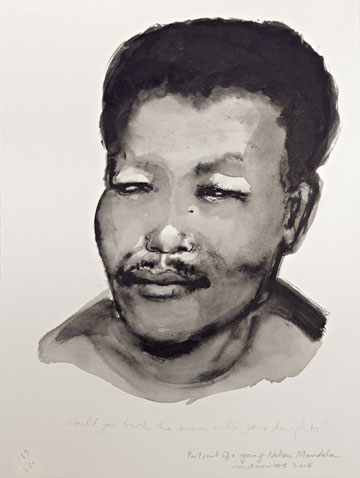Requirements for INFECTING THE CITY
Technical Production Manager to manage the technicalside (sound, lights, props, sets, crews, logistics, etc), including the venuepermissions. Technically, this Festival is huge with both indoor and outdoorperformances. This includes extensive rigging of lights (putting up trussingand lights); standby generators are needed for every performance where soundand lights are used, and budgets are restrictive.
At the City municipality everything has to go throughall the possible channels, and be rubber stamped by all different departments.
Outline of tasks: Festival Technical ProductionManager
Below are the basic steps of what is required of the TechnicalProduction Manager for ITC. It is quite simple on paper, but it can be a littletrying as performances change, officials change, and a lot of time is spent on”maybe’s”.
The job can be broken down into roughly 4 areas:
finding the venues, and getting permissions;
permission from the city to have the Festival;
technical logistics of the Festival.
1. VENUESAND PERMISSIONS
Find venues:
The possible performances need to be looked at, andthen the specific requirements of these performances need to be noted: type offlooring, audience location, amount of disturbance to surrounding buildings,accessibility etc. Then different possible venues need to be found, that couldbe used for each production. The specs of the venues will be governed by theperformances and the Curator, but a lot will have to do with availability andcost.
It is necessary to have a good idea of what isavailable in the city, and what options can be put forward for a venue choice.This will entail finding the venues. If no immediate venues spring to mind fora specific performance, then it will take a great deal of asking around. TheCape Town Partnership is very good to talk to about venues, as they have acollective knowledge about the city, and can be helpful. If this does not help,then a lot of walking around the city, getting into buildings, asking randompeople and generally being creative is required.
Once you have your options, it is necessary to findout who is controlling the venues. This could be a private company, or adepartment of the City. Cape Town Partnership can help in identifying theowners or managers of the venues. Otherwise resourceful legwork needs to bedone. This will include asking neighbours, property agents, security guards,tenants etc.
Identify theright person to deal with:
Negotiation:
It will make life a lot easier if it is possible toget these decision makers excited about the project. With ITC we have to offer trade offs. The only thing ITCreally has to offer is publicity. We can trade off mention in the programs onthe performance page, to be listed as a sponsor, banners on site and thepromise of publicity in print media.
Careful liaisingwith the Marketing Manager needs to happen on this point, and all promises needto be met.
Restrictions:
Make sure that any restrictions that the venues have,are discussed, and make sure that the proposed performance/installation is notadversely affected. These factors will have to be dealt with before securingpermission. These restrictions may lead to the performance being compromised. Mostof these restrictions can be ‘got around’ with careful negotiation, letters of responsibility,proof of insurance, trade-offs with publicity, begging, proof of support ofCape Town Tourism/CTP/Councillor’s letter etc. Generally if you can prove thatthe Festival is good for the city, has the support of the City and ITC takesfull responsibility for any damages/injuries, then most venue owners will makea plan to accommodate the Festival.
Signedpermission:
Once permission has been agreed on, it is vital to getthe terms in writing. This will be necessary for the application to the City.This only applies to private owned land, and land run by a specific departmentof the City.
2. EVENTSAPPLICATION
Approval is needed from the City Events Department, tohost a festival.
The Events Dept application and approval, is the worstpart of running a festival. There are 5 steps:
Collecting necessary data;
Written application;
Meeting with the events panel;
Re-adjusting logistics to satisfy the panel
Approval to have the festival.
The events application is handed into the City EventsDepartment. It will then be processedand then assigned to one of the events officers to handle the event. Yourevents officer will then forward the information to all the relevant parties,who (hopefully) will read the application.
Constant contact with your events officer is vital,and if possible pushes for an early meeting with the events panel.
Collectingnecessary data:
There is some groundwork that needs to be done, sothat the information can be included in the application.
1. Public participation: Signatures of all city residents within 50m of eachvenue need to be collected (see 2010 application for example). This meanswalking the city and speaking to all residents and tenants, telling them of theFestival, giving them a letter of intent, explaining about the use of amplifiedsound, and then getting them to sign the form, and say whether they agree ornot with the Festival. This takes time and patience.
2. Letters of intent to residents and businesses: Letter drops need to be made 1 month prior to the Festivalto these businesses and residents, reminding them of the Festival, and statinga contact person and number, should they have an objection.
3. Letters of intent to hospitals: Letters need to be delivered to all hospitals in thearea, to let them know the festival is happening and to be on stand-by, in caseof emergencies. The hospitals are: Christiaan Barnard, Medi-clinic and SomersetHospital.
7. DETAILED MANAGEMENT PLAN — PER VENUE
For eachvenue and performance the following areas need to be covered:
Event program when and where
Event description outline of exactperformance/installation
Layout of event map of stages/audience/seating/entrances etc
Transport Management Plan parking (staff and public), road closures
Crowd Management Plan ushers/security/safety/traffic
Security Plan protectpeople/money/property
Medical Plan medics/hospital
letters/ambulance
access/evacuation routes
Waste Management Plan who collects rubbish from festival.
Vendors/caterers what food/drink on offer +certificates
Health Requirements toilets/food sellers andanything that may cause illness
Evacuation Plan in case of emergency
Noise Exemption signed consent from all building owners/occupantswithin 50m of proposed noisy performance
Service requirements electricity and water from thecity
Approval of venue signed consent from privateand city depts.
8. MEDICAL PLAN
Detailed plan of how medical emergencieswill be dealt with. You will need to include certificates of medics forfestival, locations and times medic’s active, evacuation areas, letters ofinformation to all hospitals in the area, ambulance plan and evacuation areas.
Meeting with the Events panel:
You should try to get thismeeting as early as possible before the Festival, but it normally will onlyhappen 3-4 weeks before the event. You will be given a time where you will makea presentation to all the interested parties. They will then find problems thatneed to be addressed before they will give permission for the event.
The panel consists of:
Traffic, health, parks,heritage, waste, fire, disaster management, noise pollution, safety, medical,services, electrics, water, SAPS, CCID, CID and some others.
In theory they all should haveread the application, and have questions prepared. However past experienceshows that no-one knows anything about the event, and consequently thepresentation is vital. It should be brief, to the point, and only mentiondetails that are relevant to the parties concerned. Provide photocopies of theevent outline — with dates, times and locations — that you give out at themeeting, so they do not get confused.
In the meeting they will pick atany omissions, and raise concerns on relevant issues. All of these will need tobe complied with before permission is given.
Last minute changes:
Everything that the panelraises must be addressed and changed. All information will go to the eventsofficer, and this will be passed on to the relevant parties. Hopefully thepermission will then be given. It is very important to keep daily contact withthe events officer, as extra items will come up that need immediate attention.
Generally the people on thepanel do not like direct contact with event organizers, but it may benecessary.
3. TECHNICALLOGISTICS OF THE FESTIVAL
This is totally dependent on the specific productionsof the Festival.
Broadly there are types of events on the ITC Festival:
Internationalproductions: (all tech and creworganised by ITC according to tech rider)
Localcommissioned works: (tryand get them to organise all own tech and crew. ITC could help to source props,crew, sound etc)
Collaborations : (ITC hires dedicated production managers for theseproductions — they report directly to the Technical Manager)
Installations: (ITC organises venue and crew if necessary. Also alltech necessary, unless artists are from Cape Town, then they can do their own)
Interventions: (generally smaller scale, ITC organises alllogistics)
Sound:
Most of the performances will need the use ofamplified sound. This is expensive, and takes up a huge chunk of eachperformance budget. The reason the sound costs are so high, is that we have tohire a rig and an engineer, every day for a week. Where possible, the Technicalmanager will try to get productions to share sound equipment, but this isdependent on the schedule of performances.
Give productions the choice to sort their own sound,or to organise it through the Technical Manager. So far no production has beenable to find better quality for price ratio, than has been achieved by the ITCTechnical Manager because he sells the total sound needs of the Festival to onesupplier so it is a bigger overall bulk job.
As the technical riders for each performance comethrough, these are passed on to Hellfire for provisional quotes. If asked, theywill offer a range of different sound systems and prices. This should then beforwarded onto the artists, and they will all go with the cheapest option.
The sound is all invoiced through Africa Centre, andthe costs are taken from the performance budgets.
Sourcing:
All productions will ask their Production Manager orthe Technical Manager where to find items for props, sets and other technicalequipment. It helps if the Technical Manager has experience at sourcing forgood prices. If budget allows, a dedicated sourcing person could be on call forall the productions.
Hiring items is preferable to buying. If items need tobe bought, it helps to organise selling agreements as early as possible, sothat Africa Centre is not landed with another container of useless furniture /props / costumes etc.
For props/costumes, there are many dedicated hiringcompanies in Cape Town. Starting with Theatre and Film for costumes, and AllStars for props.
Lighting, if necessary, depends on the requirements. Suggestionsare Unfazed lighting for more advanced equipment, at reasonable prices, andLaurence Berg for more low tech/creative equipment.
Power:
Make private deals with local shops/buildings. Runextension cables for power requirements. Make sure of access on all days,including rehearsal days.
Generators are also an option — borrow or rent. Smallsilent generators can be sourced in the Yellow Pages. For larger generatorscontact Brian 082 826 0302, or Cocky 082 776 4445
If there is a municipal electricity box near thelocation, power can be sourced from the City.
Loading:
Permission for loading equipment/sound needs to besought from the right parties. Dates and times need to be discussed, as does accesswhenever needed. Often it is possible to befriend local security and dealdirectly.
Contacts:
It is vital for a festival to run smoothly, that the TechnicalManager knows all people involved with each venue. It makes the biggestdifference if personal relationships are made initially. In all dealings, faceto face meetings are recommended, so that the relationships are set up. It ismuch easier for people to delete emails, or not return calls, if they have notmet you.
Crowdcontrol:
Traffic and disaster management departments are veryconcerned about large crowds. They also worry about the adverse effects ofextra traffic and parking problems. ITC has always got away with it as it isnot concentrated in one place.
Technically, for more than 14 people walking together,you have to get a permit for procession/march. ITC has never bothered as theaudience are normal city goers.
If necessary, ITC sometimes needs help with crowdcontrol and directing the pedestrian audiences. The Festival has used ushers,in ITC T-shirts, who have been thoroughly briefed. It is also a good idea ifthere is one dedicated assistant at each performance/production.
Banners:
This is the responsibility of the Marketing Manager,but the Technical Manager should get the permissions to put up these bannersetc, as he/she has the contacts with people in the buildings or at theproduction venues. If budget has completely gone, then the Technical Managerwill be expected to put banners up alone.
If banners are going to be used, then there is aseparate application that needs to be made to the City to put these banners up.Details of dates, locations, sizes and copy need to be submitted. The Events officerwill provide you with the forms.
Useful schedules for the Festival month:
Weekly crewsheets — with call times and places and duties
Daily schedulefor all collections deliveries (transport schedule)
Daily schedulefor sound company (including set up and strike times)
Daily performanceschedule
Post productionschedule for week after Festival



